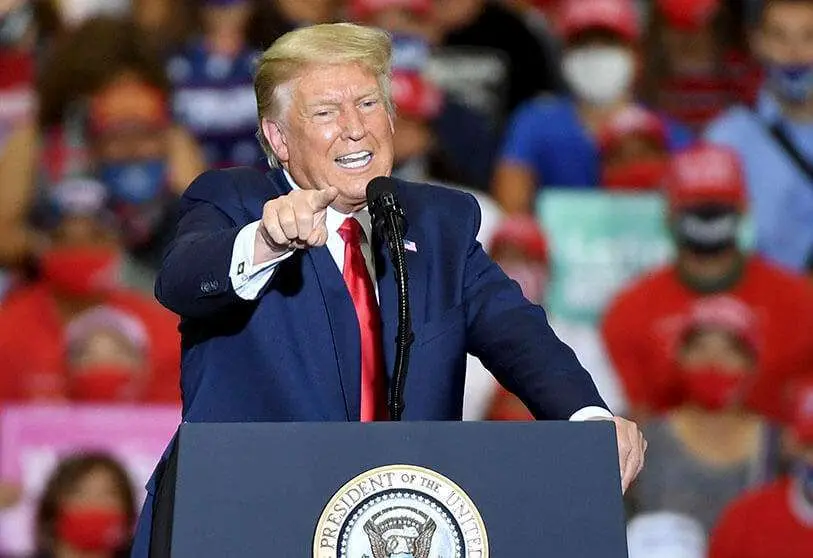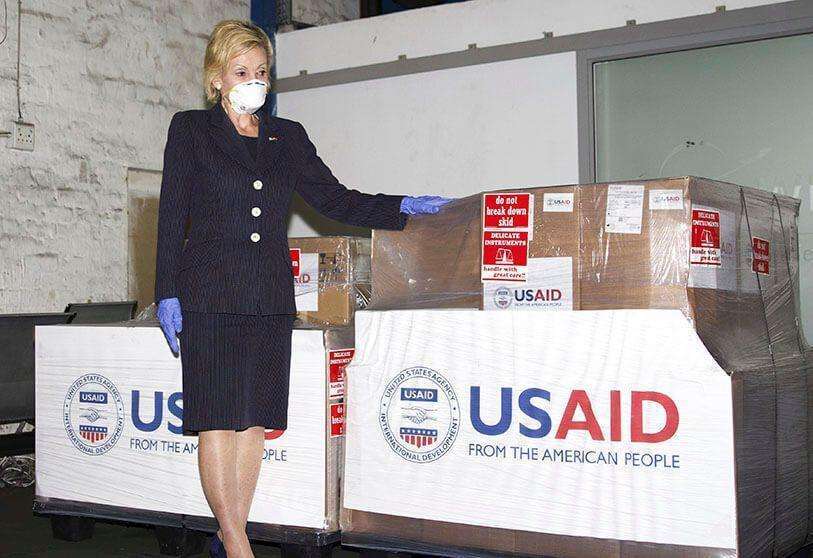Trump warns Iran: "Any attack by Iran will be met with an attack on Iran that will be 1,000 times greater in magnitude!"

US President Donald Trump has warned that he would respond to an attack from Iran with one that is "1,000 times greater in magnitude", in response to reports that Tehran is allegedly planning an attack in retaliation for the death of Iranian General Qasem Soleimani.
Over the weekend it was confirmed that the supposed target of the attack would be the ambassador Lana Marks, posted to South Africa. The aim of the ayatollahs would be to avenge the death of Soleimani, the leader of Iran's Revolutionary Guard who was killed in January by a US drone strike in Bagdag, Iraq. "According to press reports, Iran may be planning an assassination, or other attack, against the United States in retaliation for the killing of terrorist leader Soleimani, which was carried out for his planning a future attack, murdering U.S. Troops, and the death & suffering..."
According to press reports, Iran may be planning an assassination, or other attack, against the United States in retaliation for the killing of terrorist leader Soleimani, which was carried out for his planning a future attack, murdering U.S. Troops, and the death & suffering...
— Donald J. Trump (@realDonaldTrump) September 15, 2020
"Any attack by Iran will be met with an attack on Iran that will be 1,000 times greater in magnitude!", Trump has added while defending that Soleimani's death occurred because "he was planning an attack to kill American military". The United States has been aware of this threat since spring, although American intelligence warns of an escalation in recent weeks. The Iranian embassy in Pretoria is involved in the plot, as a US government official told POLITICO.
Neither the White House Security Council nor Iran's representatives at the United Nations or the officials of the South African embassy in Washington have commented on this issue. Spokespersons for the State Department, the CIA and the Office of the Director of National Intelligence have directly refused to comment. On the other hand, the Iranian government has categorically rejected the rumours that it plans to assassinate the US ambassador and has linked them to an attempt by Donald Trump's administration to allegedly tarnish Iran's image.
The South African government stated at the beginning of the week that "it takes note of the information that points to an alleged Iranian plot to an alleged Iranian plot to assassinate the US ambassador", and assured that the matter is "receiving the necessary attention" to guarantee her safety. South Africa, which has good ties with the Persian state, ratified in a statement its "duty to protect to the utmost all officials who are in the service of their country" in the African nation.
US officials quoted by the daily POLITICAL say that Iran may be planning the assassination of the US ambassador to South Africa, Lana Marks. The aforementioned newspaper points out that US officials have been aware of a "general" threat against Marks since spring, though it has become much more specific in recent weeks.

Marks, 66, was sworn in as the US ambassador last October and she is close to President Donald Trump. Supporters retort that she is a successful businesswoman and owns a brand name. A personal friend of the late Princess Diana, she also was born in South Africa and speaks some of the country’s key languages, including Afrikaans and Xhosa. US intelligence has not established why the Iranians have chosen Marks as a target, as she is a person with no ties to Iran. Her longstanding friendship with President Donald Trump may be one reason why she has been singled out by the ayatollahs' regime.
The two countries, despite being seven thousand kilometres apart, have had a historical relationship since apartheid. Diplomatic relations have never been severed and Shah Mohammad Reza Pahleví's father went into exile there and died in 1944. Iran has supported the South African liberation movements. They broke off official relations with South Africa in 1979 when Iran imposed a trade boycott in protest against the country's apartheid policies. However, in January 1994, Iran lifted all trade and economic sanctions and diplomatic relations were restored.
Following the nuclear pact signed by UN Security Council countries to impose sanctions against Iran in 2015, South Africa condemned the act as "irrational and illegal". After Trump announced in 2018 that its sanctions would be extended to any country trading with Iran. South Africa has been left waiting to resume trade relations in areas such as education, health, investment, mining, transport, agriculture, science and technology, as well as energy.








